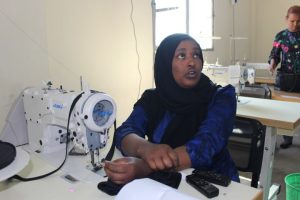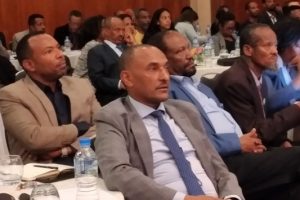
ADDIS ABABA – The Ethiopian Policy Studies Institute (PSI), in collaboration with the African Economic Research Consortium, has launched a new research report recommending that the government align human capital development with education and training sectors to enhance national productivity.
At a high-level policy dialogue held yesterday, PSI Director General Fekadu Tsega highlighted the importance of the study, which investigates the investment in education and its impact on the labor market. The findings emphasize the need to align educational efforts with employment opportunities to mitigate education-occupation mismatches.
“The study also explores the economic impact of harnessing human capital development,” Fekadu noted. “Its policy recommendations address how improving skilled and semi-skilled labor would positively influence investment, trade balance, and overall economic performance.”
PSI which focuses on economic, social, and governance policy research, works with local and international partners to support policy formulation and implementation processes. “Human capital development is crucial as Ethiopia strives to boost productivity and accelerate the structural transformation of its economy,” Fekadu added.
The African Economic Research Consortium’s Research Director Abbiy Kedir stressed the importance of human capital in the context of technological and economic progress. “Technology drives economic development, but without a solid foundation in human capital, sustainable growth is unattainable. Quality education is essential to this process,” he remarked.
Abbiy also pointed out that emerging global trends-such as globalization, climate change, and job creation-demand innovative solutions driven by human capital development. “Ethiopia must adopt advanced strategies for job creation to meet the needs of university graduates and non-graduates alike,” he emphasized.
With one-third of the global youth population projected to live in Africa by 2050 and 1.2 billion young people expected to enter the workforce within the next 15 years, Abbiy warned of the urgent need for broad, innovative policies to address unemployment.
During the event, the two institutions signed a Memorandum of Understanding (MoU) to collaborate on further research initiatives aimed at supporting Ethiopia’s inclusive development agenda.
In Ethiopia, the skills gap between education and employment challenges sustainable development. Studies indicate that integrating practical training, vocational education, and industry partnerships into the curriculum can better prepare youth for the job market, enhancing human capital and economic prosperity
BY YESUF ENDRIS
THE ETHIOPIAN HERALD FRIDAY 25 OCTOBER 2024





